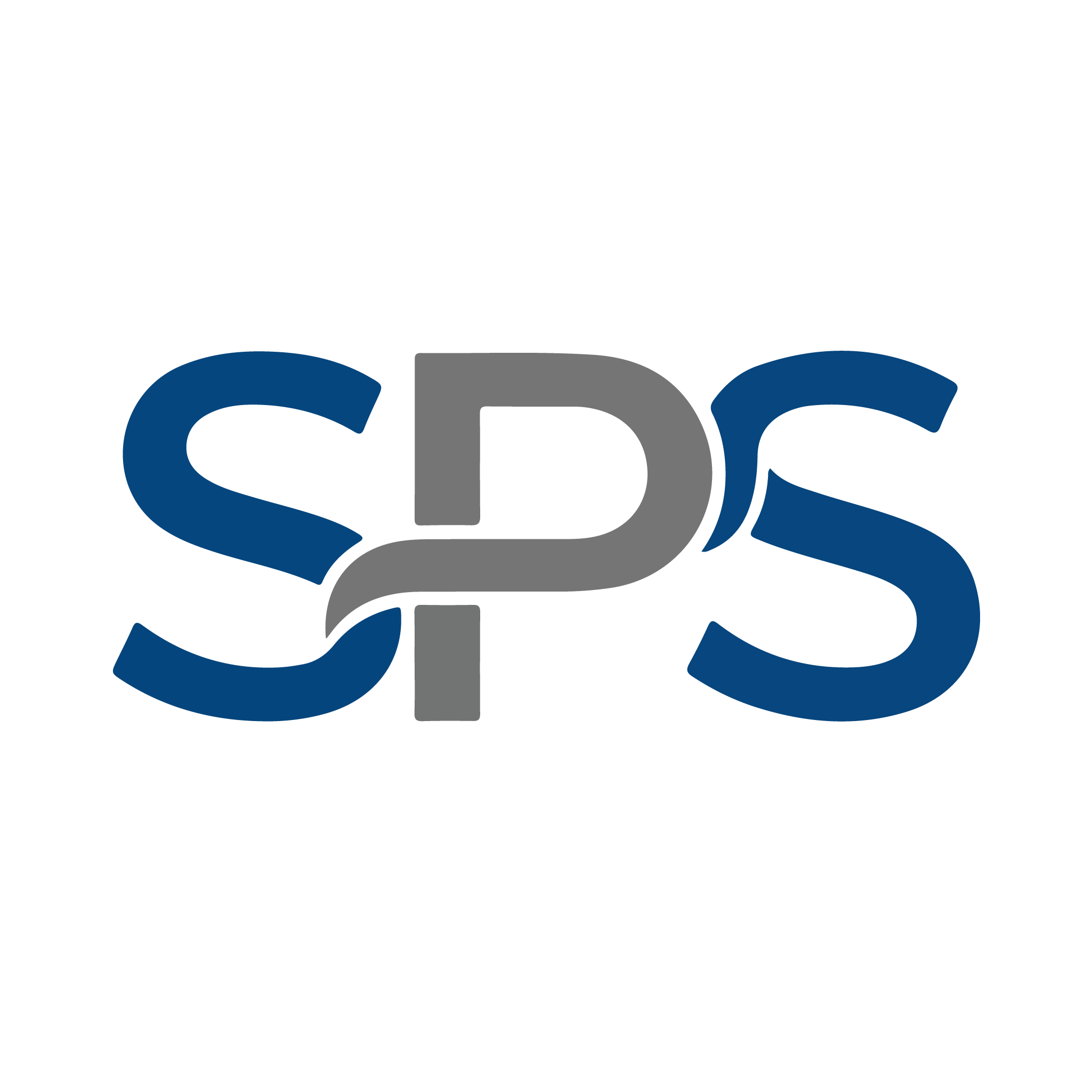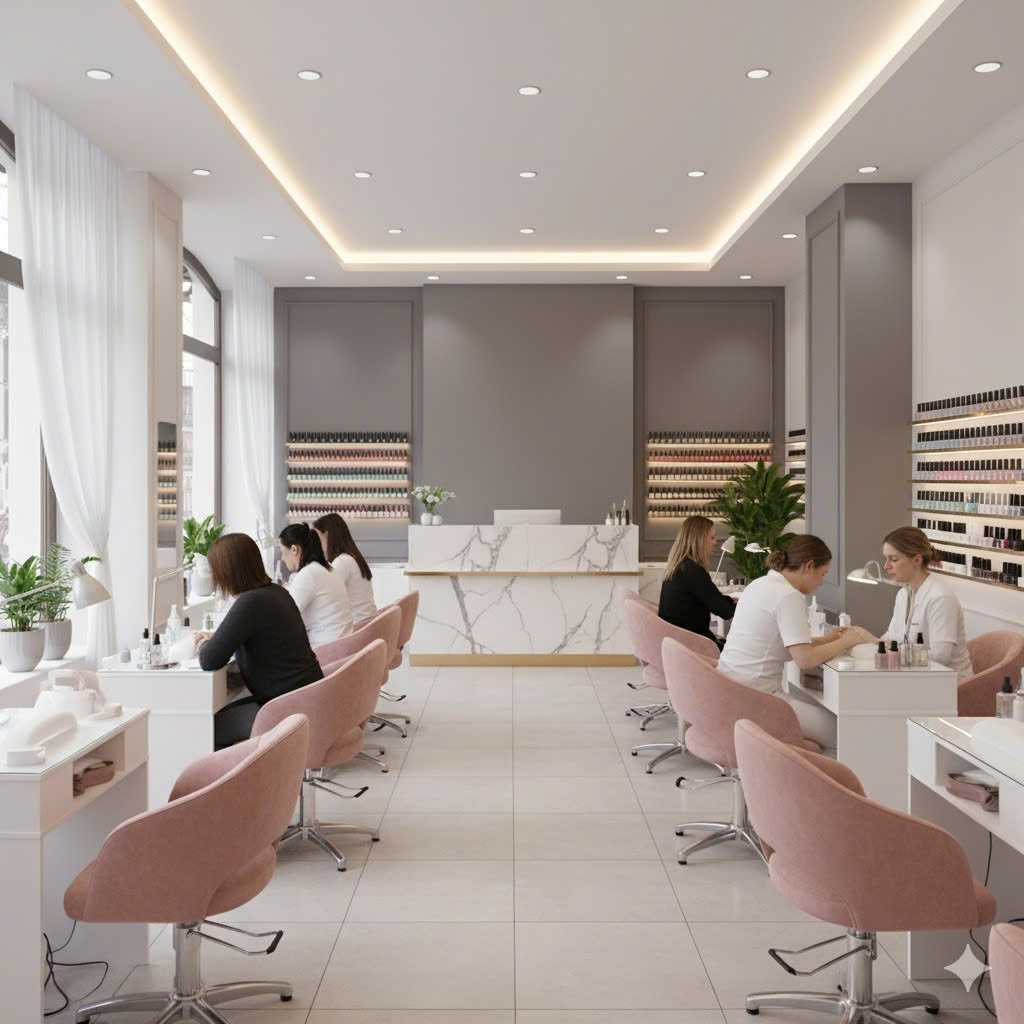
Opening a nail and spa salon in Germany is becoming a popular trend in the entrepreneurial community. Many salon owners see the potential business opportunities but remain confused by legal and tax hurdles. Choosing the appropriate business form not only affects taxes and legal liability but also determines the ability to expand the salon chain in the future.
In this article, SPS Marketing will help you understand the legal options when opening a nail salon in Germany and how to use effective management tools like S-POS and S-Checking software.
I. Why Nail and Spa Owners in Germany Must Choose the Right Business Entity
Choosing the wrong type of business entity can lead to numerous risks. You could face incorrect tax calculations or penalties, your personal assets may not be protected from liability, and securing loans for expansion can become difficult. Many new entrepreneurs assume that opening a small salon is simple, but in reality, even a small nail salon must comply with German business and tax laws.
For example, a nail salon owner in Berlin shared that after opening her business as an Einzelunternehmen (sole proprietorship), she ran into trouble when a customer filed a claim for damages. Because this structure comes with unlimited liability, she had to use her personal assets to cover the costs. This story highlights the critical importance of selecting the appropriate legal form from the very beginning.
II. Common Business Structures for Nail and Spa Salons in Germany
1. Einzelunternehmen – Sole Proprietorship with a Fast and Low-Cost Setup
An Einzelunternehmen does not require minimum capital and can be registered quickly at the local trade office (Gewerbeamt). The owner’s income is subject to personal income tax. The main disadvantage is that the owner has unlimited liability, meaning their personal assets can be at risk in case of business debts or legal claims.
For example, you can open a small nail salon and complete the registration process in just one to two weeks. However, the legal risks must be carefully considered before starting the business.
2. UG (Unternehmergesellschaft) – Limited Liability with Low Minimum Capital
Often called a “Mini-GmbH,” a UG can be founded with a minimum capital of just one euro. Its limited liability structure protects the owner’s personal assets, as liability is confined to the company’s capital. The owner must transfer a portion of the annual profit into a statutory reserve until the share capital reaches €25,000, at which point it can be converted into a GmbH. The UG is suitable for owners who want to test a business idea while still having legal protection.
3. GmbH – High Credibility, Asset Protection, and Ideal for Chains
A GmbH requires a minimum share capital of €25,000, with at least €12,500 contributed upon registration. It also requires notarized articles of association. This is the right choice for salon owners who plan to open a chain of nail and spa locations or want to build a strong reputation with banks and business partners.
For instance, a spa chain in Frankfurt chose the GmbH structure to easily secure contracts with major suppliers and facilitate the expansion of its branches.

III. Taxes and Legal Liability – Factors You Cannot Ignore
1. Taxes in Germany
Salon owners need to be aware of several key taxes, including:
- Corporate Income Tax (Körperschaftsteuer): Applies to UGs and GmbHs.
- Trade Tax (Gewerbesteuer): Varies depending on the municipality.
- Value Added Tax (VAT – Umsatzsteuer): Applied to nail and spa services.
A clear understanding of these taxes will help owners avoid penalties and manage their finances effectively.
2. Legal Liability by Business Type
Owners of an Einzelunternehmen (sole proprietorship) face unlimited liability, while UG and GmbH structures offer limited liability, confined to the company’s contributed capital. This distinction is crucial for protecting your personal assets. Choosing the right business form will mitigate unforeseen legal risks.
For instance, a salon owner who chose the Einzelunternehmen structure had to use personal funds to compensate a client after an incident. Had they chosen a UG or GmbH, this financial risk to their personal assets would have been significantly limited.
IV. Common Mistakes When Establishing a Nail Salon in Germany
Many salon owners often misunderstand the true costs and complexity of the registration process. They make the mistake of overlooking crucial obligations like taxes and social security contributions, failing to keep personal and business finances separate, or opting for a UG solely because of the low capital requirement without considering its impact on credibility and the ability to secure loans. These errors can lead to serious consequences during business operations, especially when you want to expand the salon or sign major contracts.
V. Solutions for Choosing the Right Legal Form and Managing Your Business Effectively
1. Select the Appropriate Business Model
- For a new, small startup, the Einzelunternehmen is a good choice to minimize initial costs.
- For owners who want to develop a medium-sized business and limit risk, the UG is the recommended option.
- For those planning to open a chain of nail and spas, build credibility, and partner with banks, the GmbH is the most suitable structure.
2. Use Business Management Software
Software like S-Checking and S-POS are essential tools for managing invoices, customers, and revenue, while also reducing tax-related risks. According to the IHK Berlin (Chamber of Commerce and Industry), using management software helps salon owners save 20-30% of their time on administrative and tax tasks, allowing them to focus more on customer service.
3. Seek Professional Consultation
It is highly recommended to consult with professionals such as a Steuerberater (tax advisor) and a Rechtsanwalt (lawyer). They can ensure you select the legal form that best fits your specific business situation and help you avoid unwanted legal risks.
VI. Conclusion and Advice for Nail and Spa Owners
1. Practical Experience from Nail and Spa Owners in Germany
Owners who choose the GmbH structure early on often find it easier to open additional branches and sign large contracts. In contrast, those who opt for an Einzelunternehmen must be extremely cautious with contracts and insurance. When working with nail salon owners in Germany, experts have noticed that the group who chose GmbHs tends to build their brand faster. The group that started with an Einzelunternehmen saved on initial costs but faced a higher risk of legal issues.
2. Increase Management Efficiency with S-Checking and S-POS Software by SPS
The software provided by SPS helps nail salon owners manage all their customer data, appointments, finances, and contracts. S-POS is a smart point-of-sale system that integrates payments and prints legally compliant invoices. Additionally, SPS Marketing can support you in implementing campaigns that target the right customers and increase revenue.
A nail salon owner in Hamburg shared that by using the S-POS software, the time spent on tax calculations and appointment management was cut in half, allowing them to focus more on customer service.
In our experience, there is no single model that is best for everyone; the right choice depends on your scale, expansion plans, and budget. Selecting the appropriate business type requires balancing costs, risks, and credibility. Always keep your personal and business finances separate, stay on top of your taxes, and use effective management software.
If you are preparing to open a nail or spa salon in Germany, use the software provided by SPS to manage your business easily, ensure legal compliance, and focus on developing your services. Try it today to get everything organized from day one.


